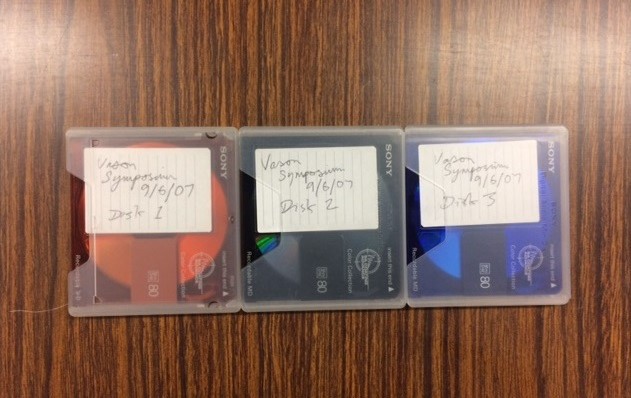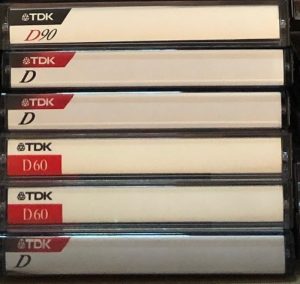A farewell to Unlocking Our Sound Heritage
Posted on by Fay Curtis.
by the Unlocking Our Sound Heritage team
The Unlocking Our Sound Heritage (UOSH) team started at Bristol Archives in October 2018. They’ve weathered fun technical issues and a pandemic, but they look back now, in their final week, on what they’ve accomplished.
UOSH in Bristol has been extraordinary. Our small team of four, with the help of volunteers and casual staff, have met all their targets and then some. Against the backdrop of the pandemic this is no small thing!
Working with 12 different institutions across the south-west, they’ve digitised and preserved 4,627 audio items, cleared the copyright to put over 500 of them online, run over 63 events that reached over 12,000 participants, ran 16 training events for 130 participants, written blogs, helped design exhibitions, and are the driver behind the our website’s forthcoming Listening Room where people will be able to explore Bristol’s audio collections online. Oh, and they changed the copyright law in Guernsey!
Here the team reflect on the project
Mary Milton, Rights Clearance Officer
Doing rights clearance for the project has been a great experience. There’s a large amount of detective work in copyright clearance, attempting to track down rights holders can be a tricky but very rewarding process. It sometimes leads to the pleasure of being able to share recordings with the relatives of those who made them.
Some of them, unaware that their relative had recorded an oral history were able to hear their voices again after a long time. Many of the recordings we have digitised are important records of our heritage, our attitudes and the way we lived. There’s something about hearing someone’s voice that can touch us on a personal level that is seldom achieved by the written word. I’ve had the privilege of listening to some wonderful recordings from all over the South West and it’s great to know that they are now preserved for the future.

Samuel Bates, Audio Digitisation Engineer
Over the course of my three-and-a-bit years working as Audio Digitisation Engineer on UOSH, I’ve learned so much. Coming from a background of commercial music production, I was already familiar with most of the technology involved. The mind-set required for preservation, and all the strange tips and techniques I discovered for saving at-risk sound items, were new to me! From rigging up strange contraptions to lubricate squeaky tapes, to hours spent nervously re-housing faulty cassettes, I’ve picked up new skills that I’m very grateful for.
What I most enjoyed, though, was the opportunity to hear so many forgotten voices from around the South West. From working-class women at the turn of the 20th Century in Bedminster, to the fabulous slice of 60s Somerset life that was Cotswold Roundabout, these important historical documents have rightly been saved for future generations. That I had a part to play in this is both humbling and fulfilling. I’ve had a blast!

Katie Scaife, Project Manager
I think it’ll be a thing people will do in the future, look back and swap stories about our ‘pandemic jobs’. I can’t have had a better one. My immediate colleagues, the UOSH team, are all brilliant, talented, humourous and steady people. I should mention that we had an amazing cataloguer in Philippa Lewis, who has already gone on to a bright future in Cardiff.
I’ve had wise support from both Bristol Archives and the British Library; things could have gone very sideways when the pandemic hit but instead a humane and workable approach to the uncertain transition was immediately proffered. And my colleagues in museum learning, participation, digital and beyond have all been a pleasure to work with. Not to mention the excellent staff members at all the other institutions we’ve worked with! Sincere thanks are also due to the National Lottery Heritage Fund who have funded our important work.
I’ve been deeply impressed by the power of archival audio to move people and connect individuals across the decades. I can think of no better way to understand that past than hearing someone who was there tell you about it in their own words. It’s important to collect oral histories – but it’s equally as important to listen to the ones that already exist! They are an immense resource for finding out how we have come to be as we are. I hope you will enjoy the Listening Room; it should be live in April or May. Do look for it.
Find out more about the Unlocking Our Sound Heritage project.
Main image courtesy of the British Library.
One comment on A farewell to Unlocking Our Sound Heritage
Don’t quit understand. ‘Farewell.. ‘ does this mean the digitisation is complete and that the archive is now available, or that the archive has ended and no longer exists??
I would love to know what topic are covered, what categories of recordings…. how can I listen in?